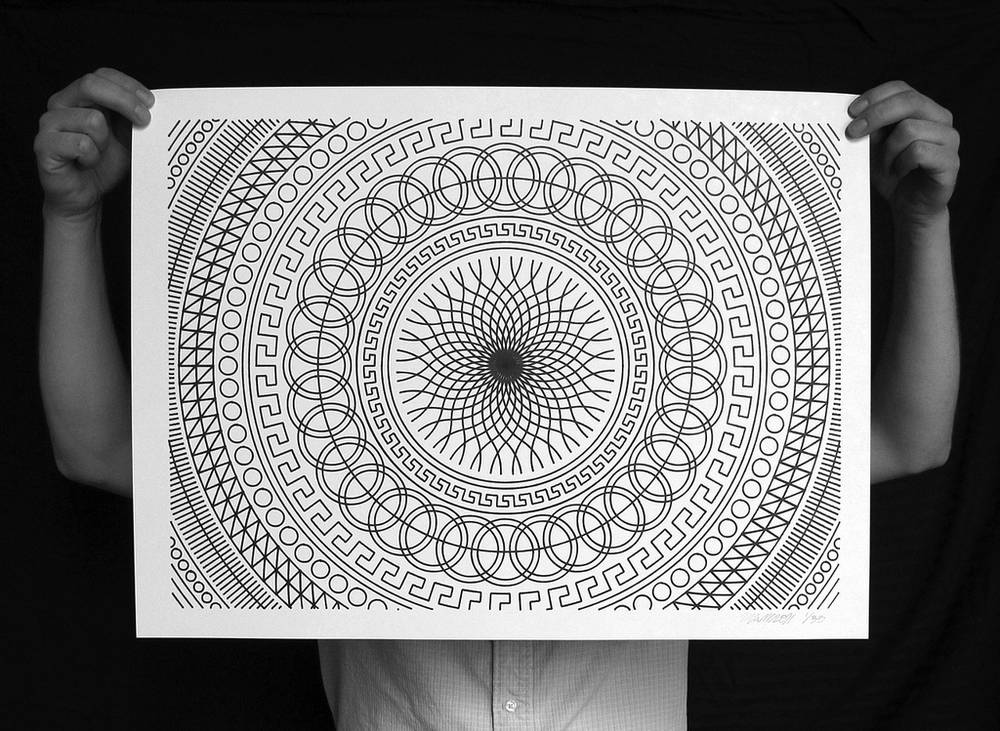
And so it begins. Carnegie Mellon researchers recently combined Facebook profile pictures and PittPatt‘s facial recognition software to identify supposedly-anonymous pictures from a dating site. Now they’re planning to demo a smartphone app that identifies faces by tapping into cloud-based image databases and recognition software. What’s next?
That’s a question I’ve been thinking about for a long time. Facial recognition via cloud computing is a major plot point in my novel Invisible Armies, which I wrote some seven years ago. When I got mugged in Mexico City a few years back, I promptly started musing about the benefits of a surveillance society. Which is on the way, make no mistake—if it isn’t here today.
There are cameras everywhere already. I don’t just mean the nearly 5 million CCTVs monitoring Britain, or the similar system planned for New York: I mean the world’s hundreds of millions of phone cameras, all of which will soon automatically upload every picture they take to cloud repositories. Charles Stross has suggested, and I agree, that police will soon wear always-on cameras while on duty, for legal reasons. Meanwhile, Moore’s Law keeps ticking along nicely, making facial recognition software ever faster, more powerful, and more accessible; cameras get ever better, cheaper, and more innocuous; and drones start taking to our skies as well as Afghanistan’s. Add it all up, and we’ll soon spend much of our lives in sight of cameras that can and will identify us by our faces in near-real-time.
A comment on my recent Google Plus proposal said: “When I go out in public, nobody knows my name unless I tell them. If one were to demand that this be changed, that everyone be forced to wear an ID badge with key facts at all times, one would be denounced as a totalitarian.” Well, soon enough that’s pretty much going to be the case—at least in France, where covering one’s face in public was banned earlier this year, and maybe in Australia and the UK too. There won’t be any point in disabling Facebook’s auto-tagging: a single correctly labelled picture of your face anywhere on the public Internet will be all that is required to cross-reference all other pictures of you ever.
I don’t mean to be a paranoid conspiracy theorist. Most of this would all still happen without any government initiatives or ban-happy mobs. The death of public anonymity is a natural side effect of improving and increasingly ubiquitous technology. That’s why the ongoing brouhaha about “real names” on Google Plus, and their apparent insistence on digging to China even after realizing they’re in a hole, is actually important. Soon enough, pseudonymity and anonymity will only exist online; in the real world, barring plastic surgery, they’ll be more or less extinct.
Which is bad news for everyone. Pseudonymity shelters whistleblowers, dissidents, and the vulnerable along with trolls. Everyone assumes that real names make conversations more polite, but I’m not so sure. Here at TechCrunch, we stooped to using Facebook Comments in part for that reason; and it worked at first; but—
Follow @arishahdadi@arishahdadi
Ari Shahdadi
It's amazing how TC comments have completely devolved into the same pit they were before, except with real names attached because of FB.
(Feel free to prove him right!)
“There are myriad reasons why individuals may wish to use a name other than the one they were born with,” says the EFF. Over at My Name Is Me, many are cited. Danah Boyd says, “The people who most heavily rely on pseudonyms in online spaces are those who are most marginalized by systems of power.” Ivor Tossell argues, “It’s a given in our system of government that staff need to stay neutral, and never, ever criticize their elected bosses in public … They’re but one group for whom the Internet offers an anonymous outlet. For every anonymous weasel in a political forum, there’s a considerate citizen with an opinion that needs shelter to be voiced.”
But my favorite citation is this: “Using a pseudonym has been one of the great benefits of the Internet, because it has enabled people to express themselves freely—they may be in physical danger, looking for help, or have a condition they don’t want people to know about,” according to, believe it or not, Google’s Directory of Privacy, back in February. Unidentified, pseudonymous, identified: “We believe all three modes have a home at Google.” Boy, a lot can change in six months, eh?
Image credit: Jesus Ruiz Fuentes, Artelista.





















